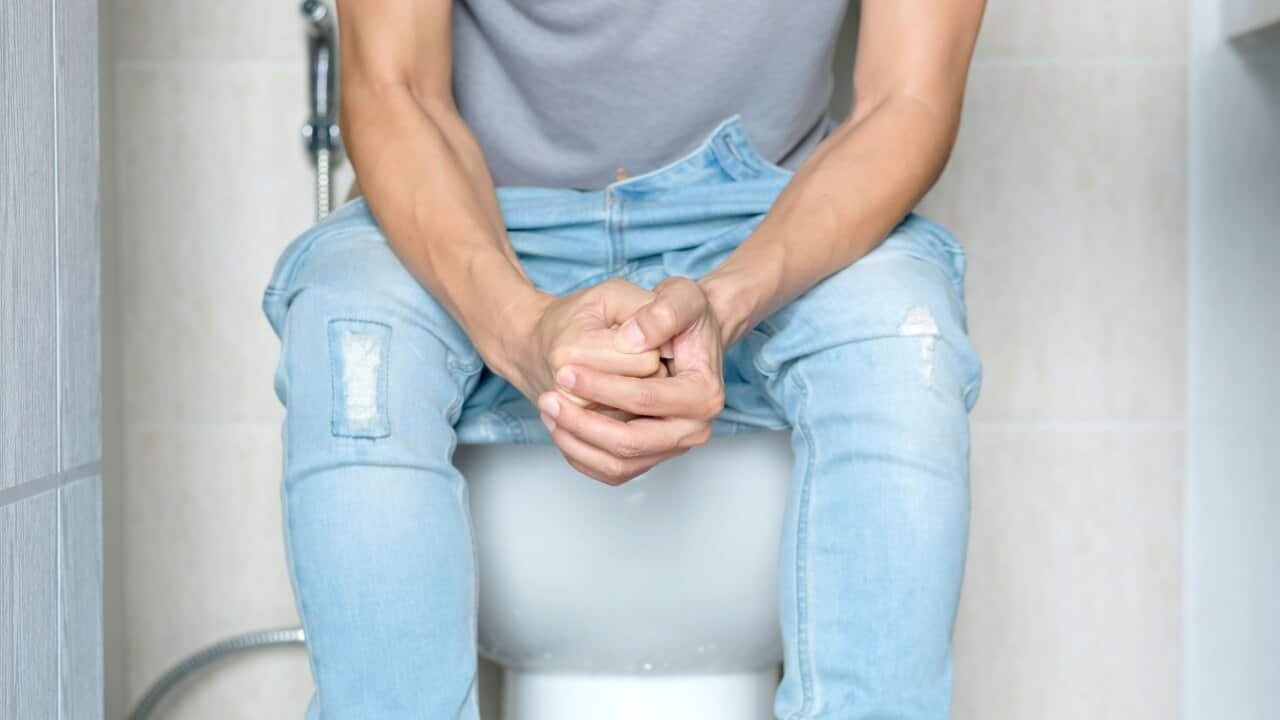But were you aware it can also impact how often you need to wee?
Here's what you need to know about how the cold can influence your toilet habits — and when it could be cause for concern.
Why do people wee more in the cold?
Christian Moro, associate professor of medicine and biomedical sciences at Bond University, said one reason you might wee more during winter is due to changes in weather conditions and your lifestyle.
"We're not sweating, it's not hot, we're not breathing out as much, so we're just not losing as much water," he said.
"[That] means if we're up keeping the same [routine], you know, cup of tea in the morning and a drink here and there, we end up with more fluid in our body, so more urination," he said.
Another cause of more frequent urination could be down to how your body responds to cold temperatures — known as cold-induced diuresis.
Moro said when your body's not warm enough, it stops sending blood to your extremities and channels it into your core to protect your internal organs.
"We call it cold hands, warm heart," he said.
"Because it's forcing the blood into the body, it's increasing blood pressure, and because it's increasing blood pressure now it's a closed system, you end up with the kidneys under more pressure.
"There's a greater pressure, there's a greater volume going through the kidneys, which means there's a greater rate of filtration … and that will increase the rate of urine excretion."
Eric Chung, professor of surgery at the University of Queensland with expertise in urology and andrology, said the change in season can also affect your production of vasopressin – also known as the antidiuretic hormone.
"When you have low vasopressin, then you produce more urine," he said.

If you keep up the same fluid intake in winter as you do in summer, you might need to wee more often. Source: Getty / Thanasis Zovoilis
"When you drink less, what happens is that you have more concentrated toxin being excreted by your kidneys," he said.
That will stimulate your bladder more, increasing your need to urinate, Chung said.
"If you keep the body hydrated … you dilute away all the toxin being produced by your kidney and therefore your bladder becomes less exposed to the concentration of toxin, then you pee a lot less," he said.
Should you be concerned?
Chung said some people are more affected than others due to their overall health, how stressed they are, and what food and drinks they're consuming.
"For example, if you are cold and you drink hot coffee or hot tea, then that caffeine can drive your bladder stimulation, so you do want to go to the toilet a lot more," he said.
Generally, urinating more during cold weather "doesn't signify anything abnormal", Chung said.
"If anything, it signals that things are working well, at least from a reflex point of view," he said.
But Moro said in some cases, it could be a sign of mild hypothermia.
"It's your body saying, 'Hey, warm up, stay warm'," he said.
"You're probably not looking after your body so if you're out, put a beanie on, wear some gloves."
If you get the urge to go to the toilet more regularly but you're not weeing much once you get there, Moro said that could be a sign of an overactive bladder, which you should get checked out by your GP.

If you're concerned by the frequency or volume you're urinating, it's worth speaking to your GP. Source: Shutterstock
The contents of your wee can also change in winter
Our bodies tend to excrete more calcium through our urine during winter, Moro said, increasing the risk of developing kidney stones.
"It's probably nothing about our body, it's just that we tend to be less active, we tend to eat warmer, preserved foods, and being less active just means there's a bit more waste buildup in our body and we're putting on weight," he said.
To reduce the likelihood of that happening, Moro said it was important to maintain an active, healthy lifestyle "through all seasons".
"It's not as comfortable to go for a morning jog on the beach when it's freezing cold, but it doesn't mean that we want to just lay indoors and eat, which is what a lot of us do in winter," he said.
Whatever the weather, Chung said it was also vital to stay hydrated and keep up healthy bladder habits.
"Minimise anything that stimulates the bladder … and also try to go to the toilet when you feel like you need to go to the toilet," he said.




